Advisory Board
Michael Harold Rea
35+ years experience in Sustainability Strategy, Reporting and Assurance; Specialist in ICMM SDF, ISAE 3000 and AA1000AS Frameworks; Global Practitioner with over 100 Assurance Engagements
Michael Harold Rea is an ESG assurance specialist with more than thirty five years of experience in sustainability reporting, integrated reporting and independent assurance. He founded and led a boutique consultancy for sixteen years, positioning it as South Africa’s most active provider of third-party assurance for ESG disclosures in integrated and standalone reports. He authored the only comprehensive review of ESG reporting by over 230 JSE-listed companies and has mentored more than fifty research interns from multiple countries. Since his first assurance engagement in 1999 for Talisman Energy, he has completed 123 assurance projects across 23 countries, including 184 site visits, working with major frameworks such as the ICMM Sustainable Development Framework, ISAE 3000 and AA1000AS.
At IRAS, Michael built and led a specialized ESG assurance practice that delivered more than a hundred independent assurance engagements across global sectors, supported by extensive on-site verification and research-driven reporting. His work spans fifteen industry sectors, including oil and gas, aviation, metals and mining. Michael holds an MBA in Corporate Social Responsibility from Wilfrid Laurier University, building on undergraduate degrees in Psychology and Biology.


Prof. Nicholas A. Robinson
Professor Robinson is widely recognized in the U.S. and globally as a pioneer of modern environmental law. He began developing environmental law in 1969, when he was named to the Legal Advisory Committee of the President’s Council on Environmental Quality. During his career, he drafted New York’s wetlands and wild bird laws and was inaugurated as the first chairman of both the statutory Freshwater Wetlands Appeals Board and Greenway Heritage Conservancy for the Hudson River Valley. He has also contributed extensively to international law, including editing the proceedings of the 1992 United Nations Earth Summit in Rio de Janeiro, Brazil. He has engaged in drafting treaties and counselling different countries on preparation of environmental laws.
Professor Nicholas A. Robinson has been a distinguished member of the faculty at the Elisabeth Haub School of Law at Pace University since 1978. In 2009, Pace University conferred the prestigious position of University Professor for the Environment on Professor Robinson for his significant contribution to scholarship in the field of environmental law, both in the USA and abroad. He holds the title of inaugural Gilbert and Sarah Kerlin Distinguished Professor of Environmental Law Emeritus.
Professor Robinson is a prolific legal scholar with hundreds of books, chapters, law review and scholarly journal articles and citations to his credit on pressing topics including conservation, historic preservation, climate change, sustainable development, zoonosis, human rights, international environmental law and more.
Prof. Kirk W. Junker
Prof. Kirk Junker is Director of the Environmental Law Centre. In 2023 he was elected to become University of Cologne’s first vice rector for sustainability. He studied philosophy and political science at Pennsylvania State University and received his J.D. from Duquesne University School of Law (1984) and the University of Pittsburgh (1996). He has worked as a lawyer for the Pennsylvania Superior Court and the European Commission. He has taught at universities in the United States, Great Britain, Ireland and Germany. Professor Junker’s research interests include US law, international law, comparative law, environmental law, European law, law and the natural sciences, and law and rhetoric. Since 2009, he has held the Chair of American Law at the University of Cologne.

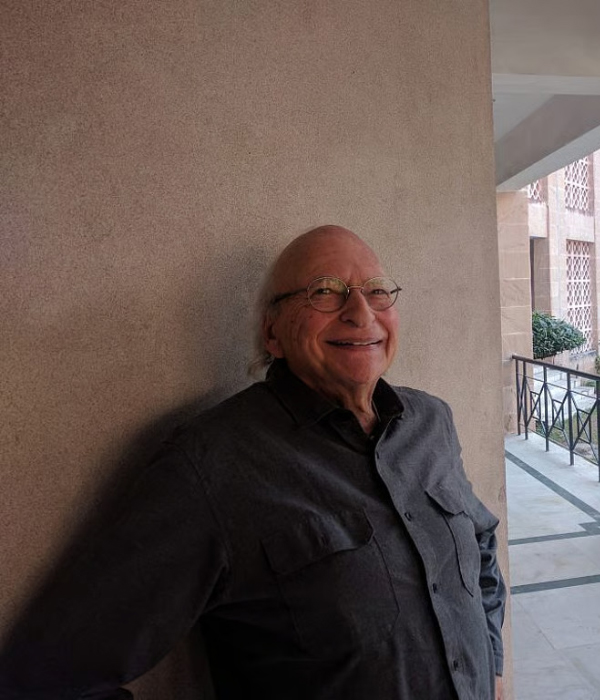
Prof. Armin Rosencranz
Dr. Anandajit Goswami
Energy Economist, Sustainability Scientist, Research Fellow at the Ashoka Centre for A People-Centric Energy Transition; Ashoka University, Advisor, NITI Aayog
Dr. Anandajit Goswami is an acclaimed energy economist and sustainability scientist with over 22 years of experience in climate-resilient green growth, sustainable development, and energy policy. He is a Research Fellow at the Ashoka Centre for A People-Centric Energy Transition, and Honorary Visiting Professor at the IMPRI Impact and Policy Research Institute, as well as Director of the Manav Rachna International Institute of Research & Studies.
Dr. Goswami has significantly contributed to research and policy design at both national and sub-national levels in India. He has led several major projects funded by organizations such as the Global Green Growth Institute and the Atomic Energy Commission, focusing on the integration of energy, economy, and climate models. Among his numerous commendable contributions to the field of sustainability, he has advised NITI Aayog and the Ministry of Environment, Forest and Climate Change, Government of India, on the implementation of progressive sustainable development growth plans across states, as well as on India’s sustainable development commitments at a global level.
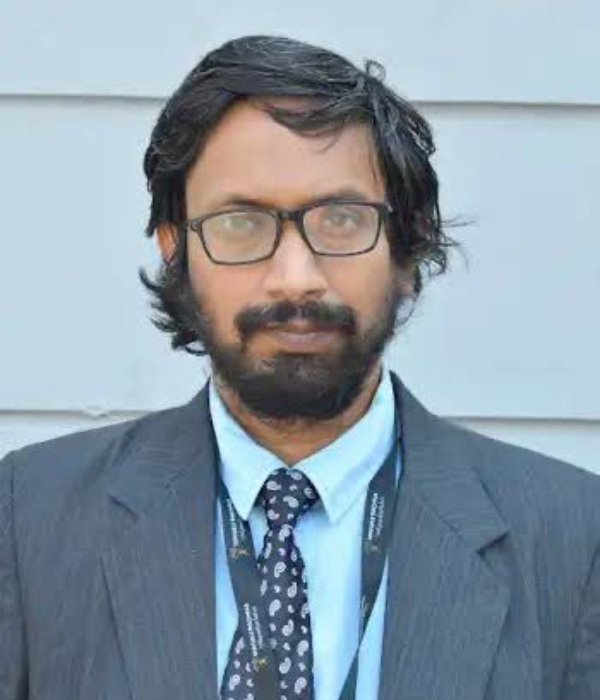

Dr. Seema Nihalani
Environmental & Sustainability Leader, ESG Reporting, EIA & Environmental Auditing, GHG Verification & Carbon Accounting, Green Building Certifications (IGBC, GREENCO), Life Cycle Assessment (LCA), Air/Water Quality Studies, NABL Accreditation & Compliance
Dr. Seema Nihalani is an accomplished Environmental and Sustainability Leader with over 21 years of experience, uniquely blending significant academic contributions with high-impact industry practice. She holds a Ph.D. in Environmental Engineering from SVNIT, Surat, and an M.Sc. in CSR and Sustainability. A key differentiator in her profile is her role as a NABL Assessor (ISO 17025), a certification that underscores her expertise in accrediting laboratories and ensuring the highest standards of technical competence and data integrity in environmental testing. Her research and professional work focus on advancing Environmental, Social, and Governance (ESG) frameworks, Environmental Impact Assessment (EIA) studies, Greenhouse Gas (GHG) accounting, and Green Building certifications. She has led and executed numerous consultancy projects, including environmental audits for 54 industries for the Gujarat Pollution Control Board (GPCB) and high-value research projects funded by national and international bodies like the Royal Academy of Engineering, UK, and the Department of Science and Technology (DST), India. Dr. Nihalani’s expertise is backed by prestigious credentials, including being a Certified ESG Practitioner, a Lead Verifier for ISO 14064 (GHG accounting), a Lead Auditor for multiple ISO standards (14001, 9001, 50001), an IGBC Accredited Professional, and the aforementioned NABL Assessor. She has a strong publication record with over 30 research papers, 24 of which are Scopus-indexed, in areas such as Air Quality & Source Apportionment, Water Resource Management, and AI/IoT applications in environmental science.
Having held leadership roles as a Director at Parul University and a Technical Manager at Geo Designs and Research Pvt Ltd, she has proven experience in managing NABL-accredited laboratories, securing regulatory clearances, and driving sustainability initiatives. She is also a dedicated educator, having served as a Professor and Head of Department, and is a life member of several professional bodies, including the Institution of Engineers India and the Indian Society for Technical Education.
Mr. Aayush Anand
Sustainability & Climate Risk Expert, GARP and GRI – Accredited Professional; IIM Ranchi Alum, AA1000 Associate Certified Sustainability Assurance Practitioner (ACSAP), ISO 14064 – 1, 2, 3 Lead Verifier, CII Certified Carbon Footprint Professional
Mr. Aayush Anand, a sustainability and climate risk expert with over 15 years of experience in the energy and infrastructure sector, is an AA1000 Associate Certified Sustainability Assurance Practitioner (ACSAP), GRI Certified Sustainability Professional, ISO 14064-1,2,3 Lead Verifier, and CII Certified Carbon Footprint Professional. He is also an IGBC Accredited Professional (IGBC AP) and an Excellence in Design for Greater Efficiencies (EDGE) Expert, with specialized expertise in sustainable building design and energy-efficient infrastructure.
He holds a certification as a Water Auditor, with specialized expertise in assessing, managing, and optimizing water efficiency and conservation practices across industrial and infrastructure projects. He has led key projects with multilateral and public sector organisations with a strong focus on green buildings, renewable energy integration and decarbonization policy development. He holds an Engineering Degree from MIT Manipal and an MBA from IIM Ranchi, complemented by the prestigious GARP Sustainability and Climate Risk (SCR) certification. A highly acclaimed author, he has written several notable articles, including a widely read op-ed in The Hindu titled “The Union Budget as a Turning Point for Climate Action”, where he emphasized the urgency of aligning fiscal policy with India’s Net-Zero ambitions. His experience in ESG and Sustainability is further strengthened by his work with the Ministry of New and Renewable Energy, as well as his OPFA Fellowship, where he has contributed to national-level clean energy strategies.
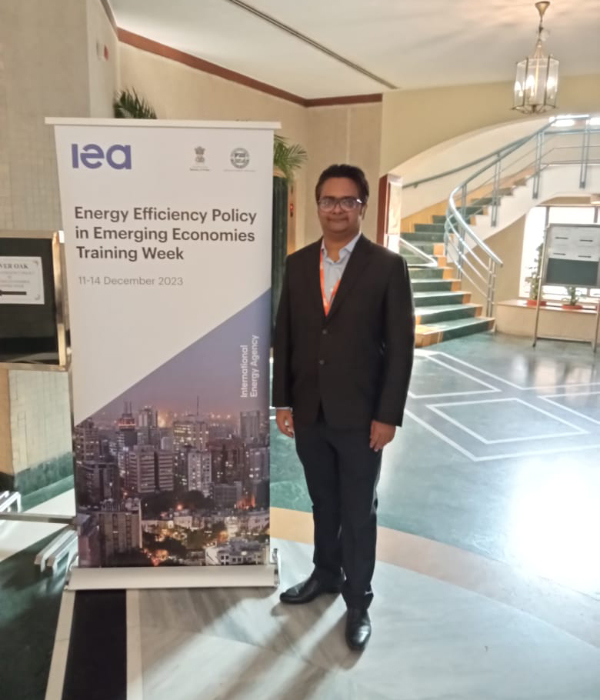

Prof. Kelly Alley
Professor, Author and Water Management Expert Alma Holladay Professor Emerita Sociology, Anthropology & Social Work Auburn University, US
Dr. Kelly Alley has worked with the World Water Forum and UNESCO to incorporate understanding of cultural diversity into water management. She is now working on water governance in the Ganges-Brahmaputra-Meghna basin. In a project funded by the National Science Foundation, Dr. Alley has been examining the potential of decentralized programs of wastewater management to meet the wastewater challenge in India. She has, in fact, carried out research in India for over twenty years, focusing on environmental issues. She was awarded the President’s Outstanding Collaborative Units award with members of the Center for Forest Sustainability at Auburn. Her latest book titled, On the Banks of the Ganga: When Wastewater Meets a Sacred River (University of Michigan press 2002), explores religious interpretations in light of environmental problems of the river Ganga. Dr. Alley serves as the Alma Holladay Professor of Anthropology at Auburn University. She did her Ph.D. in Anthropology from the University of Wisconsin-Madison, and her B.S. from Cornell University.
Prof. Dr. Abhiroop Chowdhury
Professor & Dean, Jindal School of Environment and Sustainability O.P. Jindal Global University, Sonipat, India
Dr. Abhiroop Chowdhury is Professor and Dean at Jindal Global School of Environment and Sustainability. He completed his graduation in Botany (Hons.) and M.Sc. in Environmental System Management and earned his PhD degree from Indian Institute of Technology (Indian School of Mines) on the research question ‘how development and climate change is impacting mangrove ecology at Indian Sundarbans?’ He has published around 25 Scopus/ Web of Science indexed journal articles between 2016-22 with over 500 citations. He was awarded with Inder Mohan Thapar best researcher award- 2016 by IIT for his research contributions. His areas of expertise are: Climate-change Ecology, Pollution assessment and management, blue carbon sequestration, Mangrove restoration, and Environmental Social Work. As an environmental scientist, Abhiroop had explored various biodiversity conservation sites (Kachchh Biosphere Reserve, Sundarban Ramsar wetland site), river systems (Subarnarekha and Damodar) and mining regions (Sukinda Chromite mine and Jharia coal fields). He is also actively involved in conservation and alternative livelihood initiatives at Indian Sundarbans.
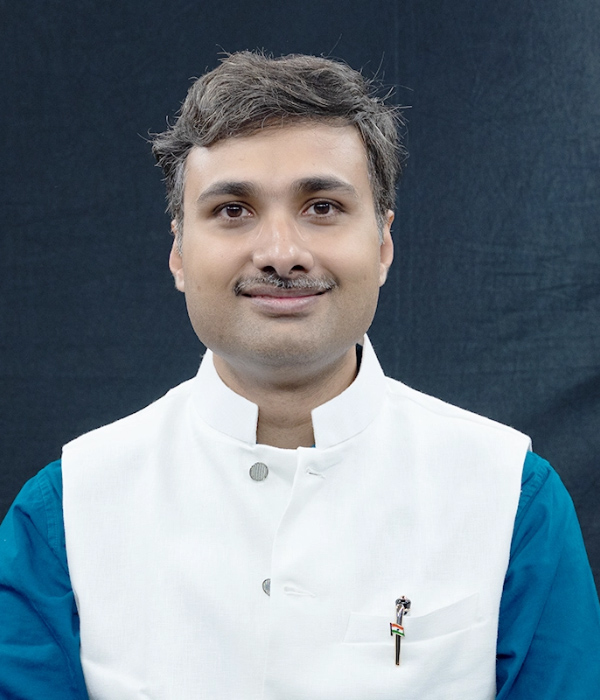
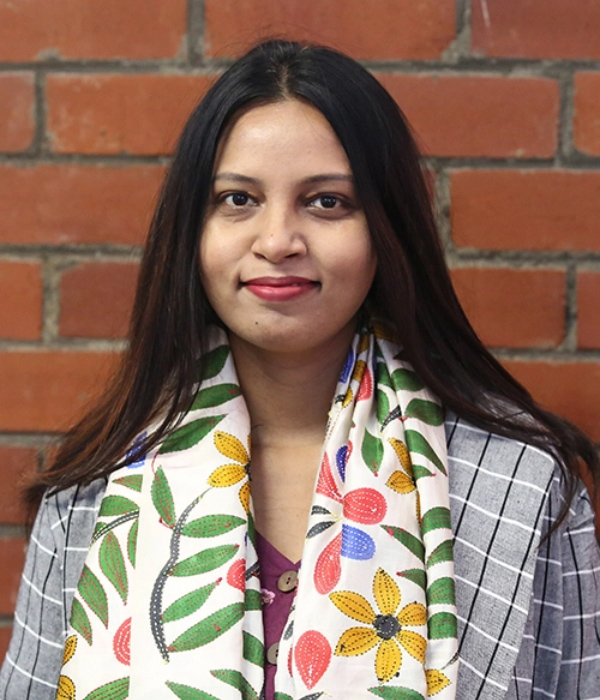
Prof. Aliya Naz
Assistant Professor, Jindal School of Liberal Arts and Humanities O.P. Jindal Global University, Sonipat, India
Dr. Aliya Naz is an Assistant Professor at ‘Jindal School of Liberal Arts and Humanities’, O.P. Jindal Global University, India. She has completed her Ph.D. from Indian Institute of Technology, (IIT) Dhanbad with an MHRD fellowship in Environmental Science. Her research topic focused on hexavalent Chromium pollution in water, soil and plants at Sukinda (the largest chromite mine of India) and its impact on human health in the mining belt. Along with her Ph.D. research she has been involved in enviro-social work project in the Indian Sundarbans (the world’s largest delta), working towards achieving UN Sustainable Development Goals (SDG’s), primarily- SDG 1,2,3,6,7,8,10,13,15. She has also worked in the Indian Sundarbans for different projects from 2017-2021 as an environmental consultant.
She has also worked as a Project Scientist at the Gujarat Institute of Desert Ecology in Bhuj, Gujarat on different socio-environmental issues such as pollution assessment, health risk assessment, and ethno-medicines along Kachchh biosphere Reserve in India. She also worked at IIT Kanpur on the status of water pollution along middle reach of Ganges river basin and its impact on human health.
Dr. Naz’s research focuses on environmental pollution, human health, and Sustainable developmental goals. She has expertise in environmental and human health risk assessment models and has published more than 15 research articles in different national and international SCOPUS indexed journals.

